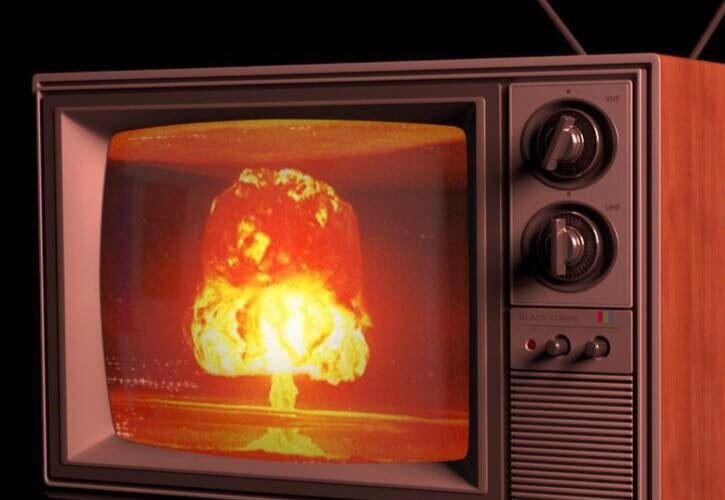Fest Track On Sirk TV Film Review: TELEVISION EVENT [Nantucket Film Festival 2021 - Virtual]
Creating a almost "Scared Straight" reflection on nuclear war in the depths of the Cold War is an interesting prospect. When ABC set out to make what would eventually be called "The Day After" in 1982, it was a bold but also interestingly enough a grim prospect. This was decades before Disney bought ABC and this was considered a movie of the week back when ABC was creating original TV movies. It wasn't like anything we see nowadays annd with only 3 big networks and network standards and practices, it sometimes balanced between after-school special type material and acting platforms with a soapy and slightly sudsy possibility. This movie, in particular, seemed different in the way it was conceived because it sought to make itself realistic but the aspect between corporate, creative and the advertisers seemed to be rubbing against each other. “Television Event” [Documentary Features] gives a very rounded view of what transpire in the making and the release of this TV Movie. Brandon Stoddard who was heading the movies division at ABC at the time admits that he didn't know anything about movies. Stu Samuels, who was alao a lead executive, was more realistic and yet they pushed forward. Brandon wanted to make something people would remember. On top of that they brought in a theatrical movie director in Nicolas Meyer who had just made "Star Trek II: The Wrath Of Khan" to a resounding success because he saw things differently. But the TV business operated very differently than movies then. Like certain movies, the story behind "The Day After" is just as interesting as what happened afterward.
Again, sometimes perspective and time creates an easier understanding. But here one sees many of the creative people older in age very adamant and sticking to the view of what happened in their prime, especially Nicholas Meyer whom the producers labeled "difficult". Meyer was in the writers room the first season of "Star Trek: Discovery" and even though he has said he doesn't know what was his and he never directed an episode of that season (which he should have), he was let go after the first season. This simply means he knows hat he wants and sometimes that doesn't jibe with the people in overall power. He has mentioned he is still working on "Ceti Aplha V" but that it was built as a 3-night event if it ever got made. Streaming has changed what something like that could be. There is an interesting parallel in how the network wanted "The Day After" built which shows how streaming has changed the business model. Originally it was supposed to be a 2 night 4-hour miniseries. Instead, because of advertising and the unknown, it became a one night 3-hour event (which was unheard of at the time). The eventual repercussions and reflections paint an interesting picture of a TV movie that had way bigger impact (100 million people watched when it aired) than anyone expected. A-
By Tim Wassberg

